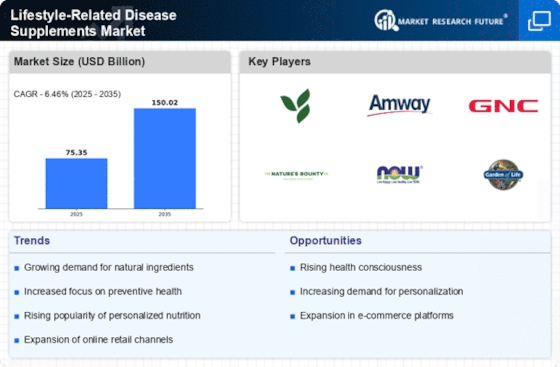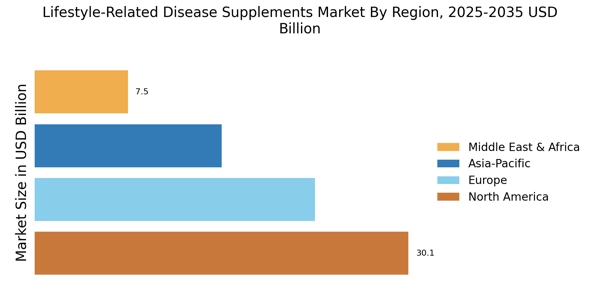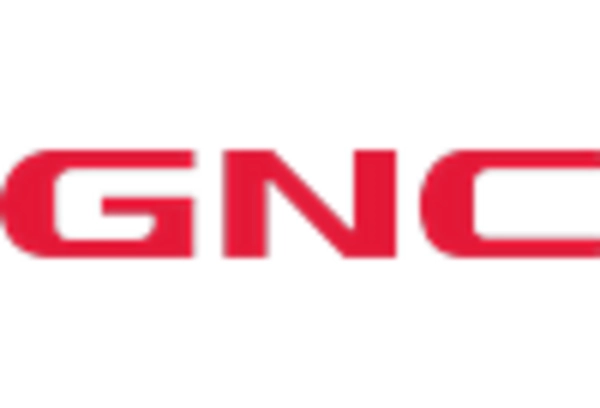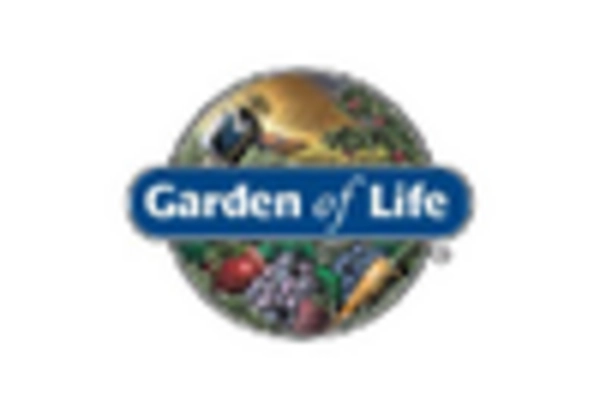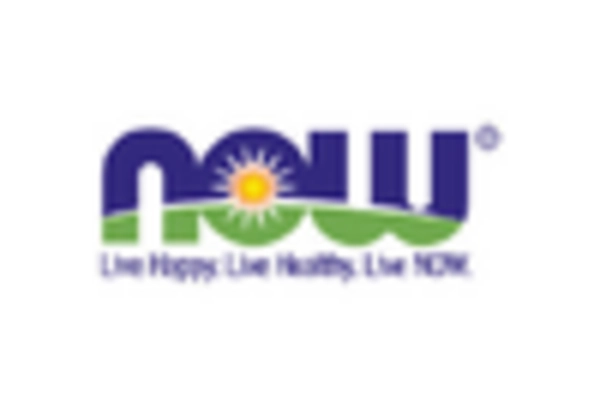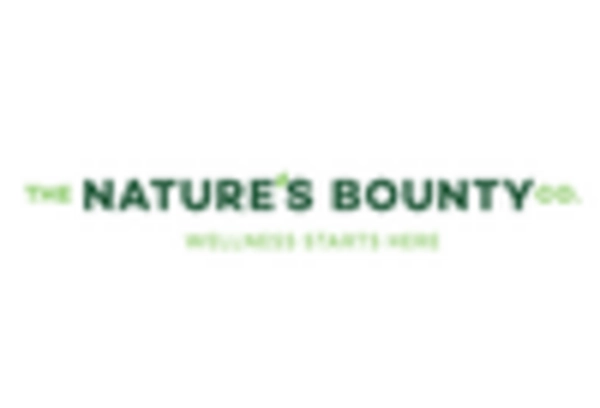Growing Awareness of Lifestyle Diseases
The increasing prevalence of lifestyle-related diseases such as obesity, diabetes, and cardiovascular conditions has led to a heightened awareness among consumers regarding their health. This awareness drives demand for supplements that can aid in the prevention and management of these diseases. The Lifestyle-Related Disease Supplements Market is witnessing a surge in product offerings that target specific health concerns, reflecting a shift towards proactive health management. As individuals become more informed about the risks associated with poor lifestyle choices, they are more likely to seek out supplements that promise to enhance their well-being. This trend is further supported by educational campaigns and health initiatives that emphasize the importance of maintaining a healthy lifestyle, thereby propelling the growth of the market.
Aging Population and Health Consciousness
The demographic shift towards an aging population is a significant driver of the Lifestyle-Related Disease Supplements Market. Older adults are increasingly focused on maintaining their health and quality of life, leading to a rise in the consumption of dietary supplements. Research indicates that individuals aged 50 and above are more likely to invest in health-related products, including supplements that address age-related health issues. This demographic trend is compounded by a growing consciousness about the benefits of preventive health measures, which encourages older adults to incorporate supplements into their daily routines. As the population continues to age, the demand for lifestyle-related disease supplements is expected to expand, creating opportunities for manufacturers to innovate and cater to this segment.
Focus on Preventive Healthcare and Wellness
The growing emphasis on preventive healthcare and overall wellness is a key driver of the Lifestyle-Related Disease Supplements Market. Consumers are increasingly prioritizing health maintenance over reactive treatments, leading to a surge in demand for supplements that support long-term health. This trend is reflected in the rising sales of products that promote immunity, digestive health, and cardiovascular support. Market data suggests that consumers are willing to invest in supplements that align with their wellness goals, indicating a shift in consumer behavior towards proactive health management. As the focus on preventive healthcare continues to gain traction, the lifestyle-related disease supplements market is poised for sustained growth, with opportunities for brands to develop innovative products that cater to this evolving consumer mindset.
Rise of E-commerce and Direct-to-Consumer Sales
The proliferation of e-commerce platforms has revolutionized the way consumers access lifestyle-related disease supplements. The Lifestyle-Related Disease Supplements Market is experiencing a shift towards online shopping, as consumers increasingly prefer the convenience and variety offered by digital platforms. This trend is supported by data indicating that online sales of dietary supplements have seen substantial growth, with many consumers opting for direct-to-consumer models. E-commerce not only provides consumers with easy access to a wide range of products but also facilitates informed purchasing decisions through reviews and detailed product information. As more consumers turn to online channels for their health needs, the market is likely to expand further, prompting traditional retailers to adapt their strategies to remain competitive.
Technological Advancements in Supplement Development
Technological innovations in the formulation and delivery of dietary supplements are transforming the Lifestyle-Related Disease Supplements Market. Advances in research and development have led to the creation of more effective and bioavailable supplements, which appeal to health-conscious consumers. For instance, the use of nanotechnology and encapsulation techniques enhances the absorption of active ingredients, making supplements more potent. Additionally, the rise of personalized nutrition, driven by technology, allows consumers to select supplements tailored to their specific health needs. This trend not only boosts consumer confidence in supplement efficacy but also encourages greater investment in the market. As technology continues to evolve, it is likely to play a pivotal role in shaping the future of lifestyle-related disease supplements.


